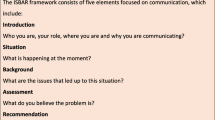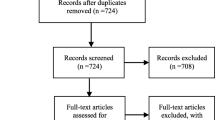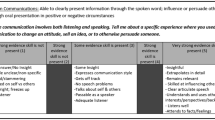Abstract
Clinical reasoning is a core competency expected to be acquired by all clinicians. It is the ability to integrate and apply different types of knowledge, weigh evidence critically and reflect upon the process used to arrive at a diagnosis. Problems with clinical reasoning often occur because of inadequate knowledge, flaws in data gathering and improper approach to information processing. Some of the educational strategies which can be used to encourage acquisition of clinical reasoning skills are: exposure to a wide variety of clinical cases, activation of previous knowledge, development of illness scripts, sharing expert strategies to arrive at a diagnosis, forcing students to prioritize differential diagnoses; and encouraging reflection, metacognition, deliberate practice and availability of formative feedback. Assessment of clinical reasoning abilities should be done throughout the training course in diverse settings. Use of scenario based multiple choice questions, key feature test and script concordance test are some ways of theoretically assessing clinical reasoning ability. In the clinical setting, these skills can be tested in most forms of workplace based assessment. We recommend that clinical reasoning must be taught at all levels of medical training as it improves clinician performance and reduces cognitive errors.
Similar content being viewed by others
References
Eva KW. What every teacher needs to know about clinical reasoning. Med Educ. 2004;39:98–106.
Anderson KJ. Factors affecting the development of undergraduate medical students’ clinical reasoning ability. PhD Thesis. The University of Adelaide, 2006; 1–4.
Linn A, Khaw C, Kildea H, Tonkin A. Clinical reasoning. A guide to improving teaching and practice. Aust Fam Physician. 2012;41:18–20.
Elstein AS. Thinking about diagnostic thinking: a 30 year perspective. Adv Health Sci Educ Theory Pract. 2009;14:7–18.
Kassirer JP. Teaching clinical reasoning: case-based and coached. Acad Med 2010;85:1118–24.
Norman G. Research in clinical reasoning: past history and current trends. Med Educ. 2005;39:418–27.
Medical Council of India Regulations on Graduate Medical Education 2012. Available from: http://www.mciindia.org/tools/announcement/Revised_GME_2012.pdf. Accessed October 2, 2014.
Graber ML. Educational strategies to reduce diagnostic error: can you teach this stuff. Adv Health Sci Educ Theory Pract. 2009;14:63–9.
Grant J, Anshu, Burch V, Zachariah A. Learning clinical problem solving. FAIMER-Keele Master’s in Health Professions Education: Accreditation and Assessment. Module 6, Unit 6. FAIMER Centre for Distance Learning. London: CenMEDIC; 2014.
Croskerry P. The theory and practice of clinical decision making. Can J Anesth. 2005;52:R1–R8.
Pelaccia T, Tardif J, Emmanuel T, Charlin B. An analysis of clinical reasoning through a recent and comprehensive approach: the dual process theory. Medical Education Online. 2011;16. Available from: www.ncbi.nlm.nih.gov/pmc/articles/PMC3060310/. Accessed May18, 2015.
Norman G. Dual processing and diagnostic errors. Adv Health Sci Educ Theory Pract. 2009;14:37–9.
Bowen JL. Educational strategies to promote clinical diagnostic reasoning. N Engl J Med. 2006;355:2217–25.
Rencic J. Twelve tips for teaching clinical reasoning. Med Teach. 2011;33:887–92.
Bordage G. Prototypes and semantic qualifiers: From past to present. Med Educ. 2007;41:1117–21.
Woods NN. Science is fundamental: The role of biomedical knowledge in clinical reasoning. Med Educ. 2007;41:1173–7.
Woods NN, Brooks LR, Norman GR. The role of biomedical knowledge in diagnosis of difficult clinical cases. Adv Health Sci Educ Theory Pract. 2007;12:417–26.
Wigton RS. Use of linear models to analyse physicians’ decisions. Med Decis Making. 1988;8:241–52.
Custers EJFM. Thirty years of illness scripts: Theoretical origins and practical applications. Med Teach. 2015;37:457–62.
Bannister SL, Hanson JL, Maloney CG, Raszka WV. Using the student case presentation to enhance diagnostic reasoning. Pediatrics. 2011;128:211–3.
Wolpow T, Papp KK, Bordage G. Using SNAPPS to facilitate the expression of clinical reasoning and uncertainties: a randomized clinical trial. Acad Med. 2009;84:517–24.
Neher JO, Stevens NG. The one-minute preceptor: Shaping the teaching conversation. Fam Med. 2003;35:391–3.
Neher JO, Gordon KC, Meyer B, Stevens N. A five-step “microskills” model of clinical teaching. J Am Board Fam Pract. 1992;5:419–24.
Gawande A. The Checklist Manifesto: How to Get Things Right. New York: Henry Holt and Company; 2009.
Custers E, Boshuizen HPA, Schmidt HG. The role of illness scripts in the development of medical diagnostic expertise: Results from an interview study. Cognit Instruct. 1998;16:367–98.
Custers E, Boshuizen HPA, Schmidt HG. The influence of medical expertise, case typicality, and illness script component on case processing and disease probability estimates. Mem Cognit. 1998;24:384–99.
Audetat MC, Laurin S, Sanche G, Beique C, Fon NC, Balais JG, et al. Clinical reasoning difficulties: A taxonomy for clinical teachers. Med Teach. 2013; 35:e984–9.
Dhaliwal G, Sharpe BA. Twelve tips for presenting a clinical problem solving exercise. Med Teach. 2009;31:1056–9.
Joshi MK, Gupta P, Singh T. Portfolio-based learning and assessment. Indian Pediatr. 2015;52:231–5.
Moulton CE, Regehr GE, Mylopoulos M, MacRae HM. Slowing down when you should: A new model of expert judgment. Acad Med. 2007;82:S109–S116.
Ericsson KA. Deliberate practice and the acquisition and maintenance of expert performance in medicine and related domains. Acad Med. 1988;79:S1–S12.
Beullens J, Struyf E, van Damme B. Do extended matching multiple-choice questions measure clinical reasoning? Med Educ. 2005;39:410–7.
Page G, Bordage G, Allen T. Developing key-feature problems and examinations to assess clinical decisionmaking skills. Acad Med. 1995;70:194–201.
Lubarsky, S, Dory V, Duggan P, Gagnon R, Charlin B. Script concordance testing: From theory to practice: AMEE Guide No. 75. Med Teach. 2013;35:184–93.
Gleeson F. Assessment of clinical competence using the objective structured long examination record (OSLER). Med Teach. 1997;19:7–14.
Norcini, JJ, Blank LL, Arnold GK, Kimbal HR. The mini-CEX (clinical evaluation exercise): a preliminary investigation. Ann Intern Med. 1995;123:795–9.
Driessen EW, Overeem K, van Tartwijk J, van der Vleuten CPM, Muijtjens AMM. Validity of portfolio assessment: which qualities determine ratings? Med Educ. 2006;40:862–6.
Askew K, Manthey D, Mahler S. Clinical reasoning: Are we testing what we are teaching? Med Educ. 2012;46:540–1.
Author information
Authors and Affiliations
Corresponding author
Rights and permissions
About this article
Cite this article
Modi, J.N., Anshu, Gupta, P. et al. Teaching and assessing clinical reasoning skills. Indian Pediatr 52, 787–794 (2015). https://doi.org/10.1007/s13312-015-0718-7
Published:
Issue Date:
DOI: https://doi.org/10.1007/s13312-015-0718-7




